Set the real and imaginary values of the four impedances as well as the magnitude and phase of the voltage and current sources.
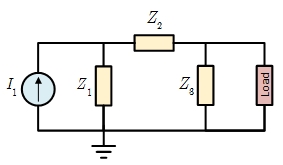
Step 1. Remove that portion of the network (the load) across which the Norton equivalent circuit is to be found.
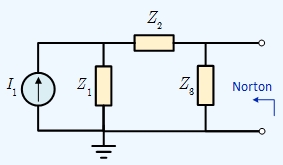
Step 2. Calculate \(\small{Z_N}\) by first setting all voltage and current sources to zero
(short circuit and open circuit, respectively) and then finding the resulting impedance between the two marked terminals.
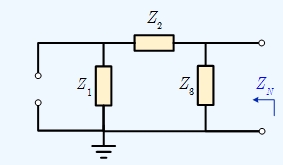
\( Z_N = (Z_1+Z_2)||Z_3 = \) Ω
Step 3. Calculate \(\small{I_N}\) by first replacing the voltage and current sources and then finding the short-circuit current between the terminals.
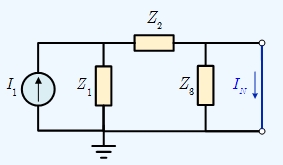
\( I_N = \frac{Z_1}{Z_1+Z_2}I_1 = \) A
Step 4. Draw the Norton equivalent circuit with the portion of the circuit previously removed replaced between the terminals of the Norton equivalent circuit.
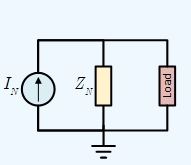
⋮